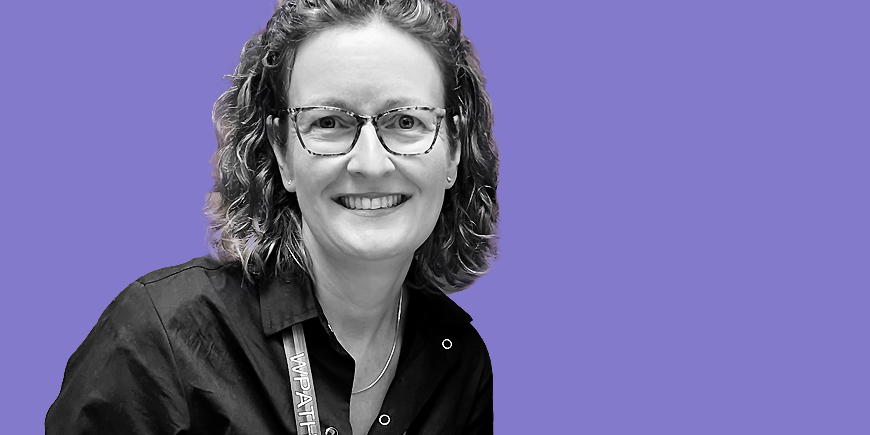
Female doctors are intimately aware of the inequities women face in health care — as patients and professionals. In a month that includes both International Women's Day and Canadian Women Physicians Day, the Canadian Medical Association (CMA) asked Dr. Fiona Mattatall, an obstetrician gynaecologist in Calgary, to reflect on those ongoing gaps and her approach to gender-affirming care. This interview has been edited for length.
What are some of the challenges women physicians and medical students face when pursuing medicine today?
Sexism has been around longer than medicine itself. While there has been progress (we are now seeing more females than males in medical school classrooms) disparities still exist at higher levels of administration where decisions are made about where health care funding goes.
One example is in the world of surgery. There is a lack of support in operating room budgets and there are still inequalities specific to sexual and reproductive health, beyond women’s health. We are constantly struggling for access to care for our patients. In addition, equipment used in surgery is designed for male surgeons, resulting in challenges for the female surgeons.
I often wonder: Are we not getting support as gyn surgeons because we are mostly women performing the surgeries, or because we are mostly doing surgeries on women? There is a long way to go, and it’s on another level for transgender health where we are about 40 years behind.
Canadian Women Physicians Day: The burden of burnout
Why are women’s health issues considered less of a priority?
When you look at metrics for how health systems are working, women’s health is almost always just measured as pregnancy care. This misogynistic view of women’s worth only tied to their reproductive capacity. You never see periods, menopause, prolapse or pelvic pain used as benchmarks for how well the health care system is doing.
Women have been historically neglected in clinical research. Take data on heart health and heart attacks, where most research has focused on symptoms and treatments for men. There is a scarcity of data on women. Women are not smaller-framed men when it comes to physiology; we are physiologically different and the data cannot be extrapolated. Another example from the basic science world is lack of understanding on such fundamental physiology as labour.
What are some of the barriers women face when they try to access care?
Being believed.
Women are told everyone has menstrual pain and it’s normal. I experienced this as a young woman.
That’s one barrier we can address as health care workers — by listening to patients and encouraging our colleagues to listen.
Unfortunately, women are also socialized to be embarrassed: For example, we still see commercials on TV where it’s blue liquid on a menstrual pad.
It’s so important to talk about our own health.
You work with the transgender community in Calgary. What advice would you give to your physician colleagues about providing gender-affirming care?
Be curious, not judgmental (to quote the TV show Ted Lasso). Listen to a patient’s experience in life and listen to their criticisms of how we can do things better.
For example, I have an intake care form I probably change every three or four months. I ask patients how it can be better, and they will point out how to rephrase questions. From my lived experience as a cis woman, I might not understand how a certain question might be a problem. I can change it, so the next patient doesn’t encounter it as a barrier.
A very simple change we can make is with language. Make sure you’re using the name and pronouns the patient uses for themselves, not necessarily what is on their health card.
The next step is to take off the stethoscope, take off the lab coat and imagine what the journey is like for the patient. By listening and paying attention we can work to make things better for patients on their healthcare journey.
As an obgyn how do you feel about the reduction in access to care for women in other places?
It is scary. It’s the only word I’d use as a Canadian kid who read The Handmaid’s Tale by Margaret Atwood in high school.
I worry that it’s not as far away as we think in Canada. We can get lulled into a sense of superiority, but the truth is we hear the same language from politicians in Canada, whether it’s about reproductive rights, contraception or LGBTQ+ rights.
I feel like there’s this looming threat of losing rights that were fought so hard for by previous generations. It’s important to know our history, what our rights are, and to make sure we don’t go back.
